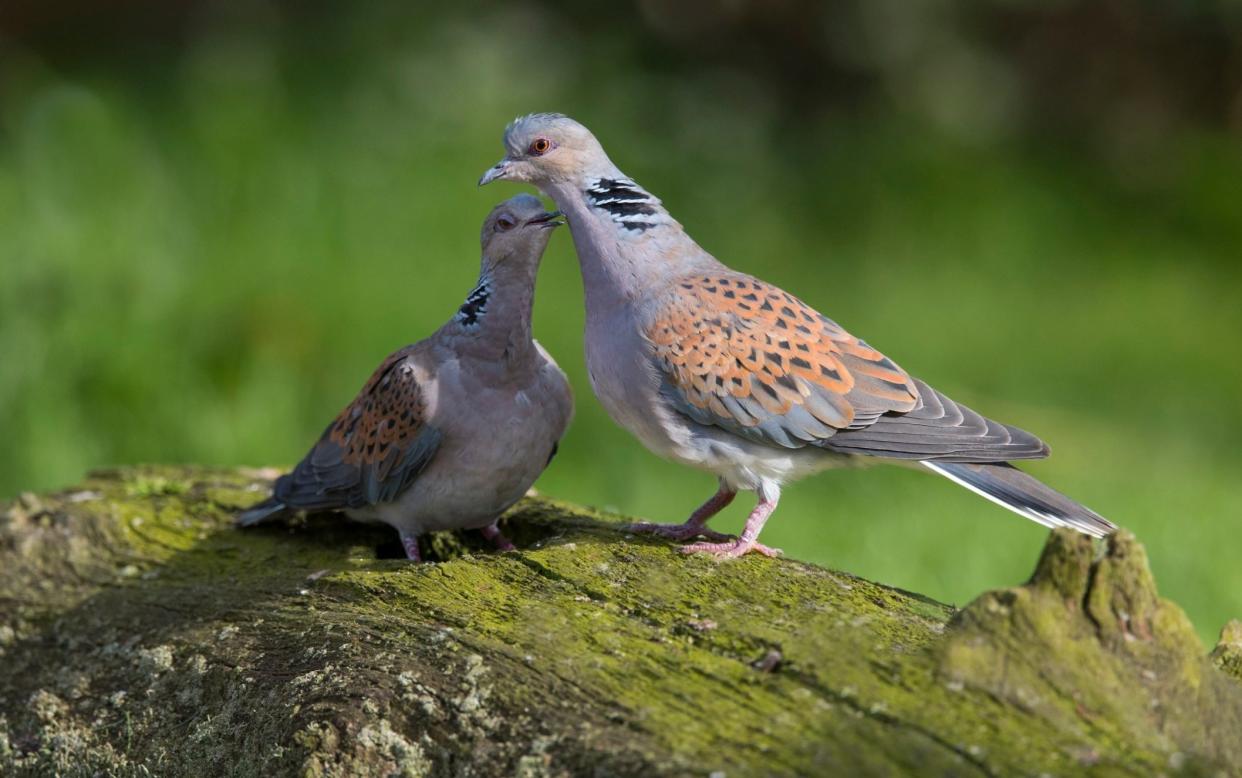Post-Brexit farm subsidy plans will see landowners paid to protect turtle doves

The first pilot scheme for the post-Brexit farm subsidy plans will involve paying farmers to take care of turtle doves.
The government is looking to trial 'reverse auction' schemes, where farms bid to receive funding, showing how they would protect a particular species on their land.
A new scheme for farmers in East Anglia means the winning bidders will have access to £320,000 to save the bird, which has faced a 98 per cent decline since the 1970s.
The last population estimate in 2016 suggested there were just 3,600 breeding pairs in the UK, with East Anglia being one of the species’ few remaining strongholds.
Now we have left the EU, the original subsidy scheme, which paid farms a flat sum based on how much land they had, will be gradually replaced with a fund rewarding farmers for protecting or restoring the environment.
The RSPB is trialing the pilot scheme with Norfolk and Suffolk farmers, to see if reverse auctioning is a useful way to give out the environment-based funding. The results will be submitted to the government.
Farmers will be asked to create feeding plots for the birds, planting the seeds of the vegetation the doves like to eat, and creating habitat for them to nest in.
The birds rely on the seeds of fumitory, knotgrass, chickweed, oilseed rape and cereal grains, and thrive on untrimmed grassland. Their habitat has dramatically contracted a this grassland was used for housing and agriculture, leading to their decline.
They also nest in hedges, so farmers will be encouraged to blant thorny species such as hawthorn and nests are often associated with climbers such as traveller’s joy (wild clematis), honeysuckle or bramble.
Jake Zarins, the RSPB’s senior project manager, said the project was a "great opportunity" for farmers looking to save "an important part of the UK's agricultural heritage".
“We are keen to engage as many people as possible in raising awareness of the plight of the turtle dove and working in partnership with those who know best how to deliver the practical assistance these amazing birds need," he added.
A Defra spokesperson said: “Turtle doves are a priority species for conservation in the UK and this trial will provide a valuable insight into the most effective ways to recover the birds – whose long term decline remains a cause for concern.
“We are committed to improving the status of declining species and the Environmental Land Management scheme will encourage the recovery of wildlife across the country.”
The first auctions will take place from 15 February to 2 March 2021.

